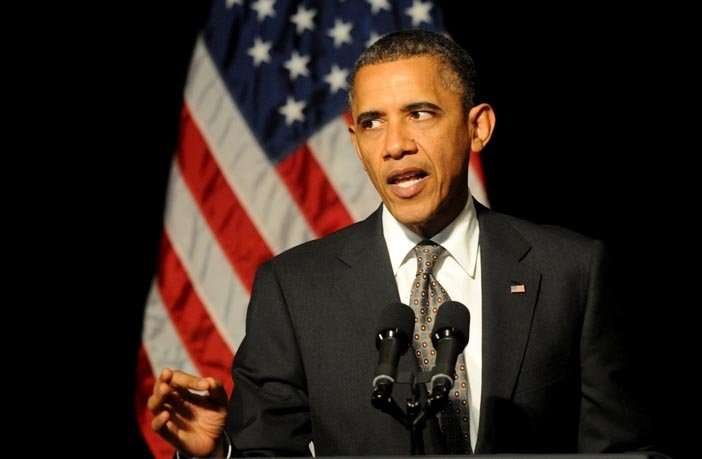New research published in the journal Electoral Studies indicates that racial beliefs can lead some Americans to minimize President Barack Obama’s economic accomplishments.
“What interested us most was the idea that people construct their own racial reality and they will align their beliefs to fit within this reality. People tend to minimize or ignore information that is inconsistent with their existing racial beliefs,” said study author Darren W. Davis, a professor of political science at the University of Notre Dame.
“Many people were not fair in their evaluations of President Obama. If they were highly racial resentful, they were not willing to evaluate President Obama objectively. Instead, individuals would align their beliefs about President Obama to be consistent with their resentment toward African Americans.”
The researchers examined data from 1,100 white respondents who participated in the 2012 Cooperative Congressional Election Study. The respondents were asked how much credit or blame the president should receive if the economy improved or worsened.
The participants attributed more blame to Obama for a worsening national economy than credit for an improving economy. State governors, on the other hand, were given more credit and less blame than Obama.
Partisanship was also found to play a role. Independents and Republicans blamed Obama more than Democrats for a worsening economy and gave him less credit than Democrats for an improving economy.
But the researchers also found evidence that racial resentment could override partisan beliefs. Among Democrats and Independents, participants who agreed with statements like “African Americans bring up race only when they need to make an excuse for their failure” tended to give Obama less credit and more blame for the economy.
“The average person should take away from our study that people can be held captive by their own political and racial beliefs. We used to think that only one’s party identification was capable of biasing how people process information, but racial prejudice can be just as strong,” Davis told PsyPost.
“Instead viewing of politics objectively, people are motivated to maintain consistent beliefs,” Davis explained. “Our findings show that people were more willing to attribute greater responsibility for poor economic conditions to President Obama and attribute less responsibility for improving economic conditions only because doing so was consistent with their resentment toward African Americans. Their racial beliefs did not allow them to see the positive accomplishments of Obama.”
“As we see in politics today, there are many questions about the importance of facts and the willingness to put up with certain types intolerant or undemocratic behavior. Our research provides an answer. People will screen-out or minimize information that does not mesh with their racial and partisan belief systems.”
“Because of this drive toward racial cognitive consistency, people construct different racial realities. We consider this to be extremely dangerous because race becomes an intractable problem; there are no agreed upon facts and dialogue becomes impossible,” Davis added.
The study, “Appraisals of President Obama’s economic performance: Racial resentment and attributional responsibility“, was authored by David C. Wilson and Darren W. Davis.

nihilset on August 24th, 2018 at 16:27 UTC »
ELI5: how do you reliably test such hypothesis?
Thermodynamicist on August 24th, 2018 at 16:21 UTC »
How is one supposed to objectively evaluate the economic achievements of any President?
How can any such achievements be disentangled from wider issues (e.g. the state of the economy when power is transferred, external shocks, etc.)?
How do we weight growth in GDP vs growth in debt or deficit?
Looking specifically at this pair of sentences:
... it seems to me that this does not eliminate the possibility that this is a rational / objective view, because it may be that e.g. negative conditions were more strongly influenced by national policy, but positive conditions were influenced by local policy. An example might be somebody blaming the President for national policies dealing with the Great Financial Crisis, but whilst crediting a governor for some local initiative.
It's possible for two people to assign totally different scores for credit / blame based upon a philosophical position if e.g. they blame the President for not getting passing legislation in the face of Congressional gridlock ("the buck stops here"), & credit beneficial local conditions to a Governor who is able to get state legislation passed, perhaps in the face of lesser opposition.
Other people might look at the same situation & say that the President cannot be held responsible for gridlock in the government brought about by extreme partisanship, or perhaps give credit to the President for suppressing legislation which they suppose would otherwise pass with negative effect.
Unfortunately, because of the paywall it's impossible to know what measures, if any, were taken to control for this sort of thing.
fukier on August 24th, 2018 at 14:17 UTC »
I wonder if this works the other way too? Where people were willing to overlook flaws due to race and such. I guess what i am saying is this is a two way street and people are just plain ass flawed.